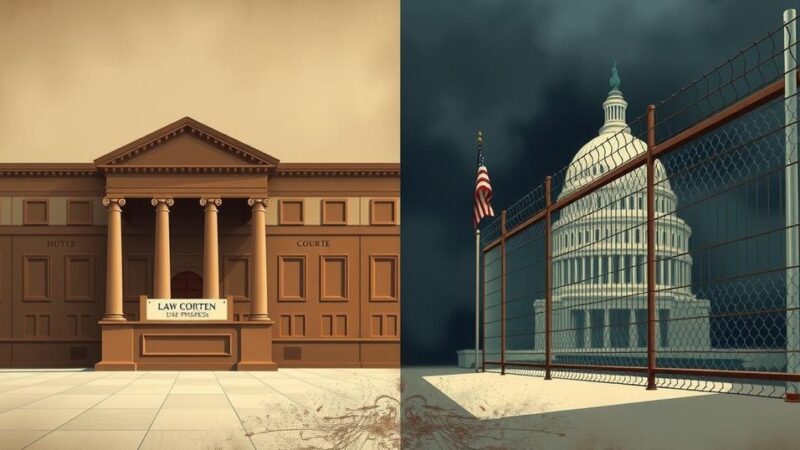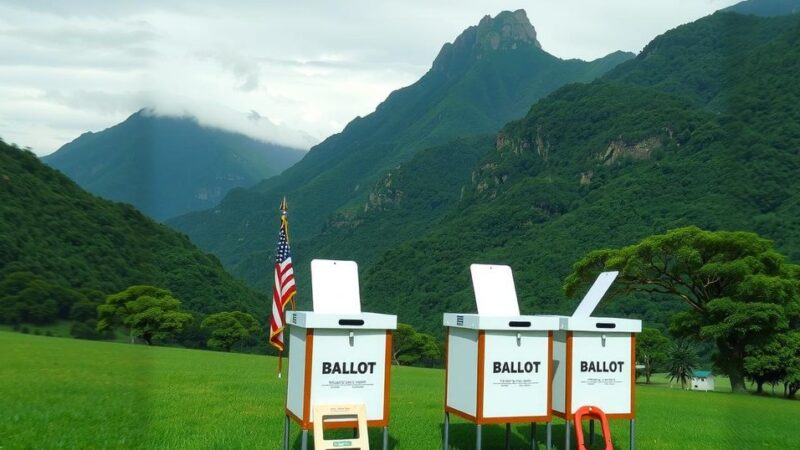Ecuador’s recent election has created a tight race between current president Daniel Noboa and leftist candidate Luisa Gonzalez, affiliated with former president Rafael Correa. The scenario raises concerns for U.S. diplomatic interests. Gonzalez’s potential victory could shift Ecuador sharply to the left and foster ties with anti-U.S. nations. The outcome hinges on indigenous voter support and Noboa’s ability to tackle key domestic issues such as violence and energy crises.
Ecuador’s recent election results raise concerns for the United States and the integrity of democracy in Latin America. The leftist party associated with former president Rafael Correa, who is allied with Venezuela’s regime, performed unexpectedly well, positioning its candidate, Luisa Gonzalez, for a potential victory in the runoff scheduled for April 13.
In the first round, Daniel Noboa secured 44.2% of the vote, narrowly leading Gonzalez at 43.9%. A significant factor in the impending runoff will be the support of voters from the leftist Pachakutik party, which garnered 5.3% of the votes, highlighting their critical role in determining the election outcome.
Should Gonzalez win, it would likely shift Ecuador’s alignment substantially to the left, fostering closer ties with nations aligned against U.S. interests. Former Ecuadorian president Jamil Mahuad indicated that Gonzalez is a staunch supporter of the Correa-led socialist movement inspired by Venezuela and Cuba.
Correa’s tenure from 2007 to 2017 was marked by his adversarial stance toward the United States, combined with controversies concerning government corruption and a significant anti-narcotics base closure, which he enacted during his presidency.
Political analysts suggest that Gonzalez stands a strong chance to win due to the combined support of Noboa and Gonzalez, which captured nearly 90% of the total votes. Experts indicate that indigenous Pachakutik voters could largely support Gonzalez in the runoff.
Noboa’s ability to stabilize his position prior to the runoff will depend heavily on addressing rampant drug-related violence, currently a primary concern among Ecuadorians, as well as resolving the country’s pressing energy crisis. The potential outcome of the election carries significant implications for U.S.-Ecuador relations and the broader geopolitical landscape.
Recalling Correa’s past achievements during an economic boon, many voters may overlook the negative repercussions of his administration, such as corruption and the rise of organized crime. Should Correa’s candidate be successful, the ramifications could present considerable challenges for Washington and the region.
The upcoming runoff election in Ecuador poses significant risks for the United States, particularly if the leftist candidate Luisa Gonzalez wins. A return to Correa’s ideologies may realign Ecuador with state actors opposed to U.S. interests, exacerbating existing regional tensions. Noboa must address critical domestic challenges to secure reelection, as the stakes for U.S.-Ecuador relations are considerable. The decision of indigenous voters, along with the ramifications of Correa’s legacy, will be pivotal in shaping the nation’s political future.
Original Source: www.miamiherald.com






